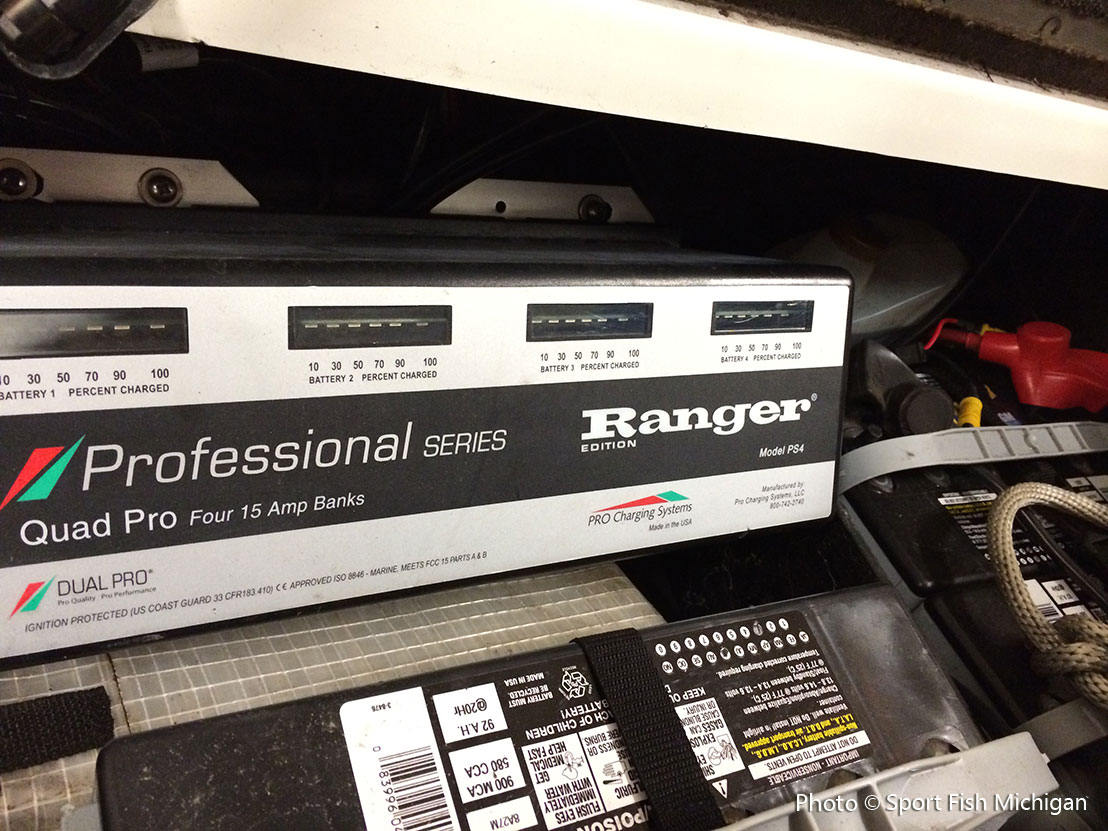Part 2
In part 1 of the article, we discussed some of the things that will help with trailer longevity, and a few things to check when putting a boat and trailer in for winter storage. In part 2, we will discuss some of the things that will help keep the boat itself in good working order come spring.
Motor
Motor maintenance is a crucial aspect of boat ownership, and is one that is done by most boat owners. It’s our motors that we rely on to get us to our favorite fishing hole, and it’s our motors that often command the most attention when they break down. There are a couple of things that we should do when putting our boats up for the winter.
The impeller is what pulls water into the motor to cool it. Needless to say, it’s a hugely important part of the motor. The impeller itself is fairly cheap, and that’s a good thing. This one part is also one of the things to keep an eye on to ensure motor longevity. When our motors don’t “pee” the way that they should (spitting water out of the back of the motor), it is often either a partially plugged intake, or it’s an impeller going bad. Regularly replacing our motor impellers will keep the motor cooling itself properly and running long into the future. Impeller replacement is something that routine motor maintenance should take care of, but it’s advisable to double check that is has been replaced every other year or so.
Spark plugs are an easy thing to replace, and can help keep a motor running at its peak. For motors that log a lot of hours like those being used by Sport Fish Michigan’s Captains and Guides, spark plugs should be replaced annually. For recreational anglers, perhaps every other year or so is acceptable. Poor motor performance can often be linked to a fouled plug.
Water filters help keep water out of the motor, and with the ethanol in today’s gasoline, replacing this filter is an essential part of preventative maintenance. Replacing a water filter every year will go a long ways towards keeping water out of the combustion chambers. In fact, on all of my boats, I took the extra step of adding a second water filter. Should there be phase separation in my fuel tanks, a second water filter will help, and hopefully stave off very costly repairs.
Dry
Storing a dry boat is much better than storing a wet boat. This will help to prevent mold during the long winter layover, making for a quicker and easier spring dust-off. One thing that I like to do is to leave compartments open to let air circulate freely. A closed compartment, especially with lots of things in it, will trap moisture and can become moldy.
Batteries
Charging boat batteries at the end of the season is a great way to keep batteries lively come springtime. A fully charged battery is better able to withstand cold winter temperatures if boats are stored in a cold facility or outside. If possible, topping off the charge mid-winter is another good idea.
Fuel
The ethanol in fuel these days can spell big trouble for boat owners. Long-term winter storage of gasoline in a boat’s fuel tank can be problematic without a fuel additive like Stabil. Phase separation is when water separates from the gasoline itself, and ethanol has a high water content in it. In the late winter and early spring, alternately warming and cooling temperatures makes phase separation a real possibility. In addition to a fuel additive like Stabil, a full fuel tank will also help. This obviously leaves less room for air, which will vary in humidity, and thus, in moisture. This moisture can lead to condensation inside the tank, which is no good.
By taking a few simple steps at the end of the season, our long-anticipated spring fishing trips can be as enjoyable as we hoped they would be. Sure, the fish may or not be biting, but at least we can get out fishing without being sidelined with repairs. Proper boat, motor, and trailer maintenance before winter storage can go a long ways towards an enjoyable experience later. I believe that preventative maintenance is far better than repairs when things break. It’s often cheaper, too!





